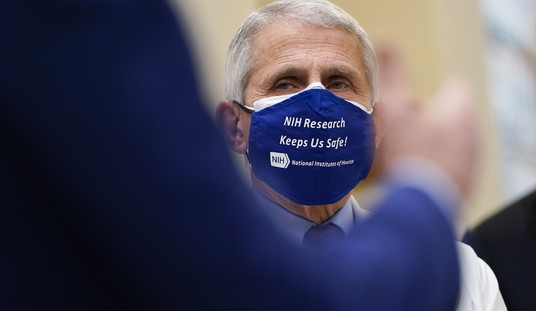Senegal - officially the Republic of Senegal - is a small nation in West Africa, situated on the Atlantic coast; the westernmost country on the continent, in point of fact. It's home to a tad under 19 million people, with a per-capita GDP of about $4,300 per year. So, a small, poor nation with an economy heavily dependent on mining, fishing, and agriculture. Like many small African nations, the people struggle with a government that has high levels of corruption, making most attempts at economic development difficult.
But there is no nation so beset with corruption that the well-meaning climate scolds of the West won't try to make things worse. Not long ago, the Public Broadcasting system ran a feature claiming that Senagal was struggling with climate change - but that simply isn't so. H. Sterling Burnett, Ph.D., the Director of the Arthur B. Robinson Center on Climate and Environmental Policy and the managing editor of Environment & Climate News, has the details.
The story, “Senegal struggles to cope with climate change despite promises of help from other nations,” consists of a series of interviews with and anecdotes shared by select Senegalese with PBS about the troubles they face, which they tie to climate change and lack of Western funding for climate mitigation. In particular, PBS’s story focuses on woes of Senegal’s fishing industry and non-governmental organizations’ (NGO) claims that the world isn’t providing promised funds to held the country contend with climate change. Even while acknowledging funding from the World Bank built a sea wall which helped prevent flooding, beach erosion, and benefited tourism, Fred de Sam Lazaro reporting for PBS says:
[E]fforts so far by the World Bank and donor nations have done little to help those hardest hit. Around Saint-Louis, which has long been pummeled by devastating floods, a two-mile seawall was built and fishing families relocated farther inland. They’re safer, they say, but hardly secure.
Their struggle is starkly visible in fishing communities up and down the coast. A backbreaking morning’s worth of work, and all that this boat brought back today was one crate about a quarter filled with anything that is marketable out there.
Climate change has diminished the quality of fisheries.
The problem with the PBS piece is this: It just isn't so.
See Also: Liberals and Climate Anxiety: Whose Fault Is It?
A Look At the One Practical 'Renewable' Energy - Geothermal
Dr. Burnett writes:
The problem for Lazaro’s narrative is that he points to no data, nothing identifiable as evidence, much less definitive proof, that climate change is behind the hardship that Senegal’s fishing communities are facing, which is, in fact, leading some people from the fishing villages to migrate.
Fishing is a staple of Senegal’s economy.
“Senegal has one of the world’s richest fishing grounds. With an annual catch rate of 450,000 MT per year, for the last five years. Senegal has been the second largest fish producer in West Africa,” the U.S. Department of Agriculture states.
The primary problems Senegal's fisheries industry suffers from are territorial and technical; they face intrusion by larger, commercial fishing vessels that overshadow Senegals' fishing fleet of small boats. But it's in the area of agriculture where PBS gets it badly wrong.
Agriculture comprises a large part of Senegal’s economy, and there, as in other countries and regions around the world, climate change has contributed to improved growing conditions and crop yields. Most of Senegal’s crops are grown for domestic consumption, rather than trade in international markets. Among the top crops grown in Senegal are, maize, mangoes, millet, rice, and sorghum. U.N. Food and Agriculture Organization data show that from 1990 through 2023:
- Senegal’s maize yield increased by more than 196 percent;
- Senegal’s mango yield expanded by about 8.5 percent;
- Yields of millet in Senegal grew by nearly 132 percent;
- Rice yields in Senegal increased by about 54 percent; and
- Senegal’s Sorghum yields grew by a little more than 88 percent.
Why would PBS run a misleading report like this?
Like many leftist outlets, PBS is committed to the "climate change is harmful, everywhere, in every way" mantra. We've seen time and again how this just isn't so, and Senegal stands as another refutation. Yes, the climate does change, and Senegal isn't alone in experiencing a slightly warming climate. We are in an interglacial period, and slight warming is typical of those periods.
But panic-mongering like this is especially harmful to small, poor nations like Senegal. The only way out for people in places like this is the development of free markets - in a word, capitalism. Senegal is struggling to develop a tourist trade and to develop their mineral resources, but the efforts of organizations like PBS in this matter are counter-productive. The climate panic agenda is fundamentally anti-development, anti-industry, anti-extraction, anti-anything that would help a small, impoverished nation get on its feet.
Senegal, likely, will never become a beacon of freedom and prosperity. It still struggles with a corrupt government and a poorly educated populace. But if we can't help them up, those of us in the Western world, the least we could do is to stop trying to hold them down.
And that's precisely what PBS is doing with this insufferable, patronizing panic-mongering.















